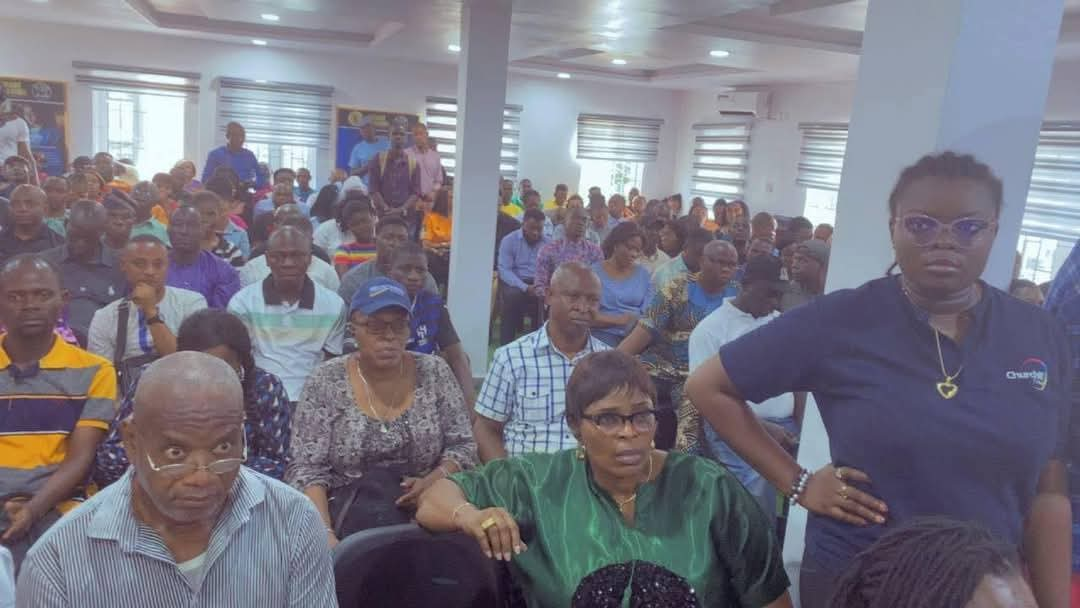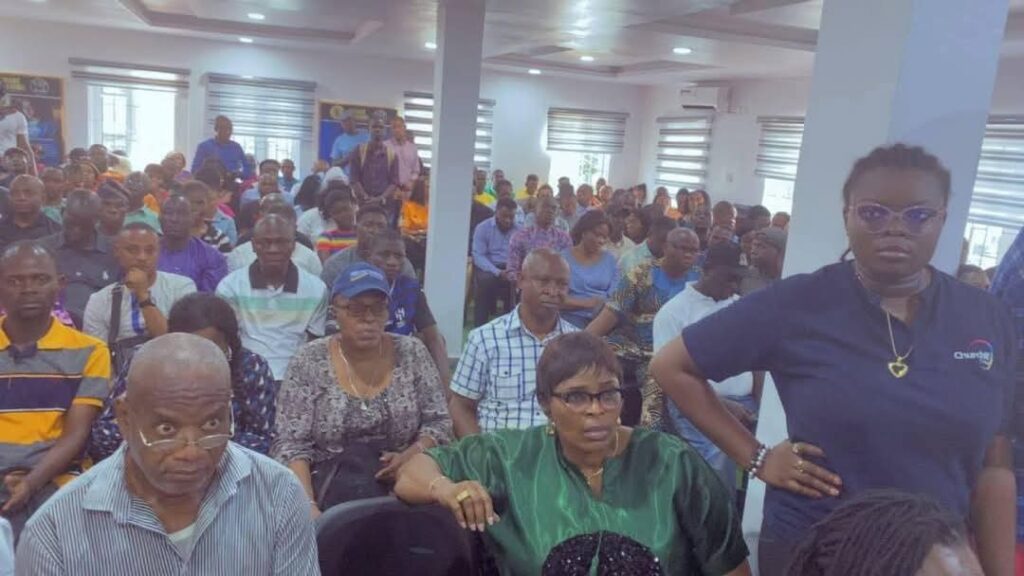Commentaries
Cashcraft and CBEX: Two of a kind in Ponzi netherworld
Published
2 days agoon
By
Admin
By Ikechukwu Amaechi
In the wake of the disappearance, on Monday, of Crypto Bridge Exchange Smart-Treasures, widely known as CBEX, a digital asset platform, grief and regret have enveloped the land and understandably so. In the coming days, some will commit suicide, having watched, in some cases, entire life savings, pensions and hope for a more secured financial future evaporate like morning dew.
This latest Ponzi scheme, experts say, may have cost the victims an estimated N1.4 trillion. Such colossal sum will, no doubt, have dire consequences for the economy, including the disappearance of the sanguinity of the unfortunate investors.


The CBEX swindle, now Nigeria’s biggest Ponzi scam, when added to an estimated N300 billion lost since 2016 gives an estimated N1.7 trillion lost by Nigerians in sundry Ponzi schemes in nine years.
Because CBEX, a digital trading company, with no physical presence in Nigeria, lured its hapless clients with promise of high returns, some Nigerians have uncharitably labelled them greedy people, victims of their own gluttony. Though not pronounced, it is hard to miss the “it serves them right” sneer in most of the ongoing conversations.
The Economic and Financial Crimes Commission (EFCC) said that much on Wednesday when its spokesperson, Dele Oyewale, claimed that the anti-graft agency has, for the umpteenth time, warned Nigerians against falling for Ponzi schemes.
Oyewale said: “In March 2024, the EFCC Chairman, Mr. Ola Olukoyede, directed us to publish a list of 58 Ponzi scheme operators to warn the public. That shows we’ve been proactive. We had already been monitoring CBEX, and we’ve continuously advised Nigerians to stay away from such deceptive platforms. We have empowered, enlightened and informed the public. Nigerians must take responsibility for safeguarding their investments by verifying compliance with relevant laws.”
Weighing in on the matter same day, The Guardian newspaper, in its lead story, “Desperate Nigerians lose over N1.7tr to Ponzi schemes in nine years,” listed five ways to spot such a scam, including high returns with no risk, pressure to reinvest and recruit new investors, guaranteed return on investment, unknown owners/corporate offices and unregistered and unregulated business.
While these tips may come in handy, they are not sufficient.
Why? Like most things here, there is no pattern in the country’s Ponzi madness. Financial institutions such as banks, insurance and stock market companies, duly registered and regulated are known to have disappeared with investors funds.
Truth be told, these scams have persisted not because the victims are greedy or not discerning enough but because nobody is held accountable for such frauds. There are no consequences for bad conduct in the financial sector.
I know this for a fact because I am a victim. And I am a victim not because I am greedy or not discerning enough to differentiate Ponzi schemes from genuine investment channels. No! I am a victim because the line that differentiates both is too tenuous in Nigeria. I am an investment enthusiast because I believe that it is as important to an individual as it is to an organization and a state. Investment is a powerful tool for wealth accumulation and financial security. Because it helps in generating passive income, it is the primary way people save for retirement. Simply put, people invest to meet obligations in the future. I also grew up believing that the more diversified the investment portfolio, the better, hence my foray into insurance, stocks and bonds.
Three years ago, I lamented my experience in the insurance world in an article, “Industrial and General Insurance Plc. as a Ponzi scheme.”
I wrote: “Is Nigeria’s insurance industry now a glorified Ponzi scheme? This is the question concentrating the minds of investors right now… The reason is simple. When an insurance company defaults in paying the claims of clients at the maturity of a policy, it is not better than a Ponzi scheme, an unconscionable pyramid investment that lures investors solely to defraud them. An insurance firm that conjures all manner of policies to entice clients without intention of meeting obligations is a pyramid investment. Simple! And that is what Industrial and General Insurance Plc. (IGI) has become and I will not let it get away with the fraud.”
I got paid eventually though I was shortchanged, courtesy of the said article. But till date, hundreds, if not thousands of IGI clients are yet to be paid many years after the maturity of their policies.
Right now, I am a victim of another Ponzi scheme, this time by Cashcraft Asset Management Limited.
For those who may not know, the company, a dealing member of the Nigerian Stock Exchange, which registered with the Securities and Exchange Commission (SEC) as a broker and fund manager, was incorporated in 1991 with an authorised capital of N3 billion, and shareholders’ funds of over N1.5 billion. As at the time I invested, it had offices all over the country, with a promise to help Nigerians build enduring wealth for themselves.
One of their products was the Personal Earning Annuity Scheme (P.E.A.S), which was designed, according to them and with the permission of SEC, to meet the long term investment needs of self-employed people, business owners and individuals both in public and private sectors.
“The scheme is a disciplined and consistent investment plan which could be used to store and create wealth for the future which makes the retirement period a season of relaxation and happy memories, and not of financial worries,” they boasted.
The scheme, they insisted, was managed in such a way that it guaranteed gradual increase in capital and adequate securities for a client’s future needs after active working life, in addition to affording a unique opportunity to take care of dependants in the event of premature death.
“Take your destiny into your hands, subscribe to P.E.A.S plan now!! And take care of your retirement period!” they ululated.
I believed them. In September 2006, I took a 15-year P.E.A.S Investment Plan worth N500,000. On maturity in September 2021, I was supposed to be paid N6,289,988. In December 2016, I invested another N3 million under the P.E.A.S Education Plan for my children, with a maturity date of December 10, 2026.
When the N500,000 investment matured, Cashcraft, like IGI Insurance refused to pay. Alarmed, I complained to the SEC management in a meeting in Lagos. They literally threw their hands in the air. I then got my lawyers to write the company not only to demand payment for the investment that has already matured but a termination of my children’s education policy and refund of my capital.
As I write, Cashcraft Asset Management Limited, just like CBEX has vanished, literally, into thin air.
In September 2024, some Nigerians, fellow victims of the Ponzi scheme, petitioned the House of Representatives over their failed investments totaling more than N8 billion. The group, in the petition sponsored by the member representing Awka North/South Federal Constituency of Anambra State, Hon. Professor Obiageli Lilian Orogbu, demanded the intervention of NASS to help members recover the trapped funds.
Unfortunately, almost eight months thence, that has not happened. The 9,326 hapless Nigerians, including my humble self, scammed by this soulless company of their hard-earn money are yet to get justice even as the promoters of the Ponzi scheme live large.
As Hon. Orogbu told her colleagues last year, Cashcraft Asset Management Limited is duly licensed by the Nigerian Stock Exchange (NSE). So, Nigerians who invested with them committed no crime and it is not their fault that the company went rogue. It, therefore, behoves SEC to ensure that Cashcraft fulfills its obligations to clients.
On the face value, the amended Investment and Securities Act (ISA) 2025, which was signed into law in March by President Bola Tinubu is a step in the right direction because it is not only a sweeping reform aimed at strengthening investor protection and tightening oversight of Nigeria’s capital market, it explicitly criminalises the operation and promotion of Ponzi schemes, empowering the SEC to prosecute offenders with penalties of up to 10 years in prison.
But while the amended Act is a significant step forward, legislation alone is not enough to stem the criminal tide. Enforcement is the elephant in the room. It is good that the EFCC has assured CBEX investors of getting back their funds. The anti-graft agency should also make the same commitment to Cashcraft investors because both companies are two of a kind, agents of financial darkness in the Ponzi netherworld.
I also agree with SEC Director General, Dr. Emomotimi Agamaour, when he said on Arise TV that the primary responsibility of the Commission is investor protection, which stems out of registration and regulation.
Agamaour further said CBEX was not registered with the SEC, which makes it illegal and has not received any complaints from its victims. He made a vow, nevertheless, that “if we had received any formal complaint regarding CBEX, the team at the SEC would have actually swung into action trying to get who is involved.”
Well, while waiting for CBEX victims, SEC has a low hanging fruit in the Cashcraft scam. The company is registered with SEC and duly licensed and the victims have made formal complaints. So, SEC should swing into action and ensure that they get justice.
–Published in TheNiche
